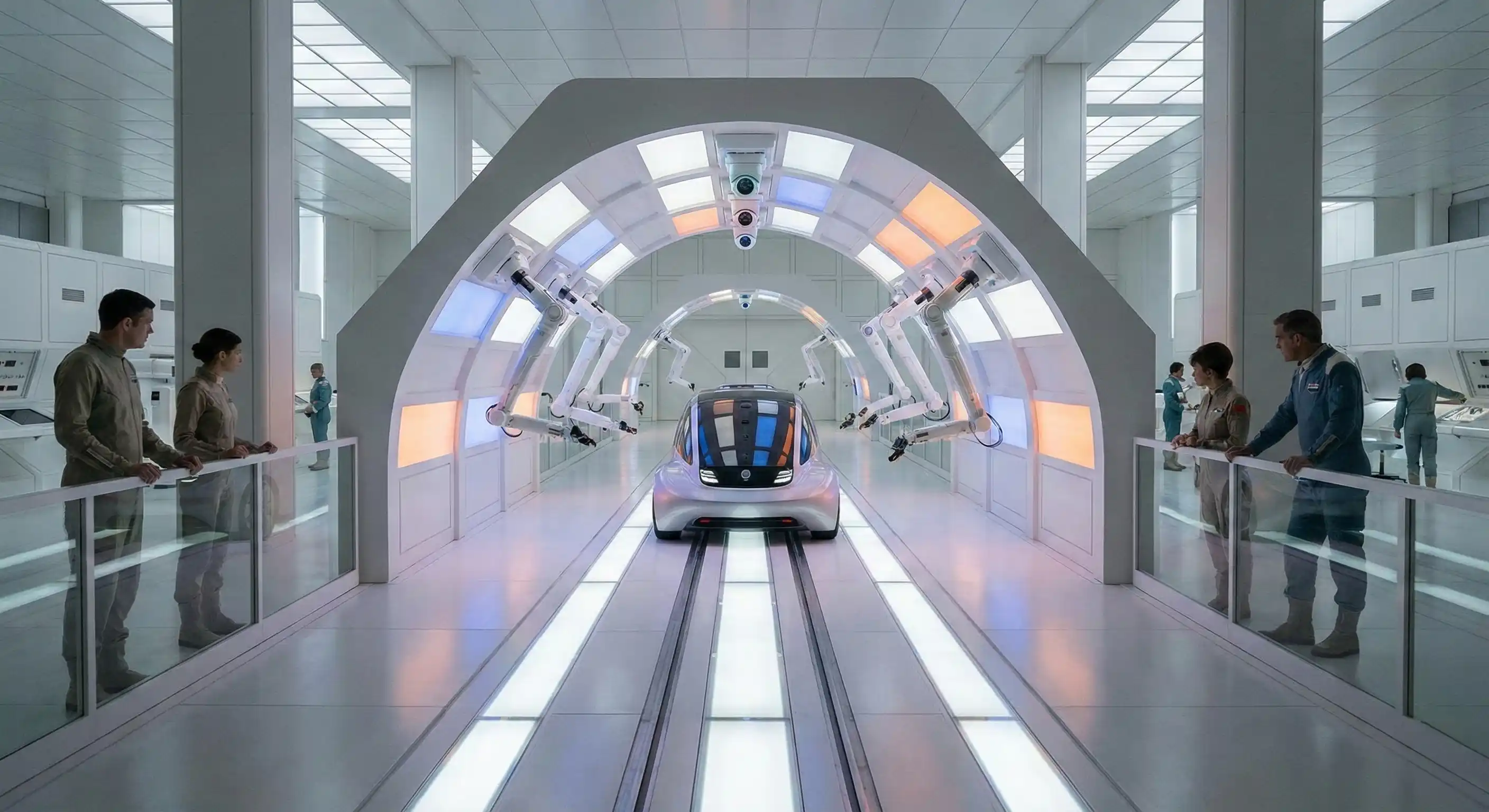The fourth wave of industrial revolution has brought a host of AI-powered, data-driven innovations to the manufacturing process. Yet, many organizations are still reluctant to take advantage of these technologies, citing complexity, disconnect between systems, and a steep learning curve required to operate new software and hardware. Elementary helps manufacturers embrace smart factory concepts by providing a full-stack solution that’s easy to implement, easy to integrate, and easy to use.
What is Industry 4.0?
Think of it as a fourth wave in the Industrial Revolution. The first wave brought us steam-powered mechanization; the second added optimization through assembly lines; the third introduced digital technology to the manufacturing process; and now we have systems powered by Machine Learning (ML) and Artificial Intelligence (AI) that are capable of real-time decision making and can effortlessly adapt to changing requirements and conditions.
Industry 4.0 is driven by the network of embedded sensors that collect production data and feed it to software systems that collate, process, and analyze all types of information. The more data these systems can access, the smarter they become, learning to discern patterns, make adjustments, spot deviations, and gather insights that can increase productivity and add efficiency and flexibility to the manufacturing process.
Production data doesn’t exist in isolation – Industry 4.0 systems can correlate it with other repositories, such as ERP, supply chain management, and customer service portals, providing real-time feedback to decision makers about production outputs, supply levels, and potential quality issues.
Why are manufacturers still on the fence about Industry 4.0?
When automation was first introduced to manufacturing (remember, the “third wave” of the Industrial Revolution), it was costly, complex, and often created disconnected “islands of automation” – pools of machines that perform specific functions without being integrated into the larger manufacturing process. Data collected from these disjointed functions wasn’t as useful as manufacturers had hoped, with analysts still having to manually examine production reports and investigate problem root causes. To operate new machines, manufacturers had to hire skilled workers, with even more specialized operators needed to fine-tune automation equipment and make adjustments when production requirements changed.
New technologies that define Industry 4.0 offer measurable improvement over previous-generation automation practices. But many organizations remain skeptical about how AI-driven smart systems can impact their business, or whether the ROI can justify the cost of implementation, the disruption to decades’ worth of institutional knowledge, and the need to upskill their workforce. And while Industry 4.0 is still an evolving concept, it has already successfully demonstrated that it can do the job faster and more cost-effectively than its predecessors. Take for example the new generation of collaborative robots that help boost production and improve quality. These nimble, capable machines work alongside humans and are easy enough to set up and configure that even small and medium-sized manufacturers can now implement industrial automation. With Industry 4.0 concepts catching on across the manufacturing landscape, it’s clear that enterprises who choose to adopt its emerging technologies and principles are positioning themselves for long-term advantage.
How does Elementary fit into Industry 4.0? The ultimate vision for Industry 4.0 is to create solutions that are self-contained, easy to implement, cost-effective, secure, accessible from anywhere, integrated into other core enterprise systems, and provide quality data that deliver actionable insights to assist with on-the-spot decision making. Elementary delivers visual inspection systems that meet the most ambitious Industry 4.0 goals – trusted by forward-thinking manufacturers around the world.
Full-stack solutions: Industry 4.0 systems can be complex and contain components that many operators are unfamiliar with. Elementary provides a full-stack solution that contains all the hardware and software needed to set up an inspection process, while focusing on rapid implementation and ease of use.
Quality data on a native cloud: With all its data stored in the cloud, Elementary makes visual inspection insights accessible to operators and decision-makers anywhere. Traditional legacy systems store image data on local devices, with limited options for sharing it via FTP. With Industry 4.0 automated vision solutions, data can be shared seamlessly, with anyone, anywhere, and can also be integrated into ERP, CRM, and other enterprise systems to provide feedback to the manufacturing process and pinpoint problem root cause. For example, operators can compare trends from Elementary inspections with data provided by suppliers to identify potential sources of defects.
Enterprise-level security: Elementary’s multi-layered security strategy and governance policies are designed to protect customer data at every step of the way. Between strict compliance protocols, automated vulnerability scanning and patching, and continuous monitoring, Elementary’s security is meeting the strictest industry standards and follows best practices.
Many manufacturers have had great success with Elementary – they tell us that their experience with Elementary’s AI-based vision systems have made them more confident in Industry 4.0 technologies, paving the way for further innovation and more digital transformation projects.
To learn more about what Elementary can do for your organization, contact us.




